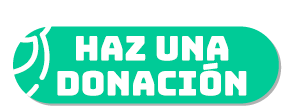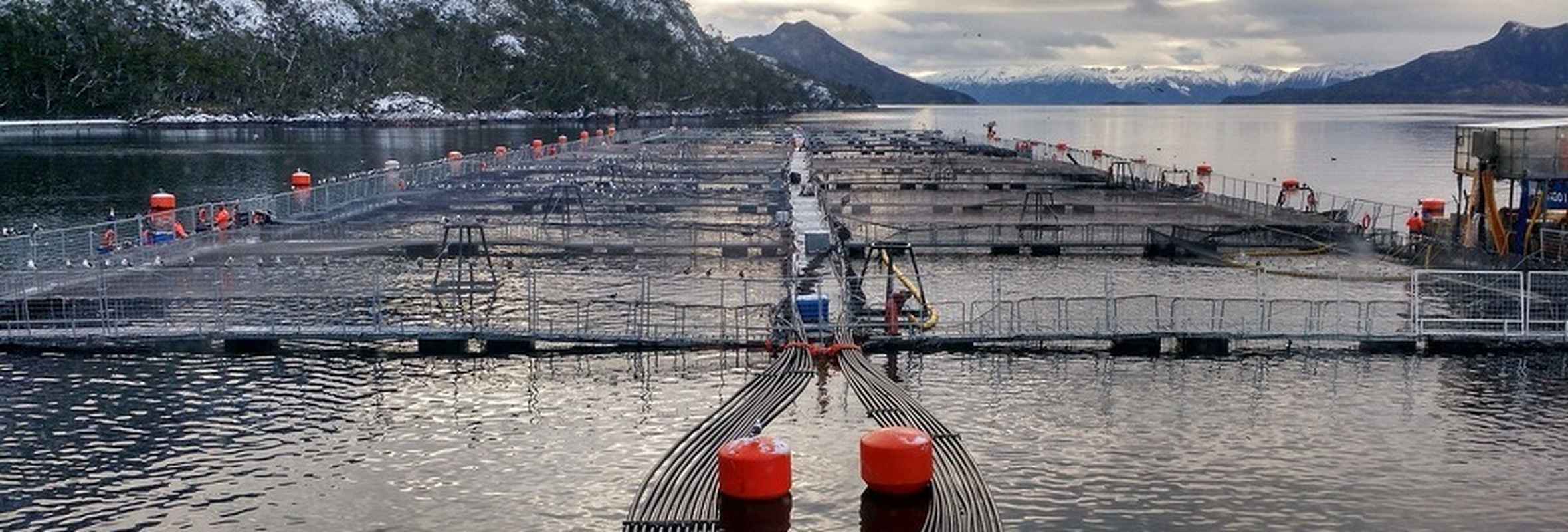Juan Carlos Cárdenas (1), Elsa Cabrera (2), Bárbara Galletti (2) and Patricio Igor Melillanca (1)
This article was originally published in spanish in Resumen.cl
As organic products gain ground in ‘premium’ international markets, so do the marketing strategies of large animal protein production companies. The cover-up of sanitary and environmental irregularities and the use of environmental certificates promoted by government authorities, retail chains, and non-governmental organizations (NGOs) -associated with the certifying companies – are just a few examples.
The certificate seals suggest that the products are healthy, safe, and sustainable while incorporating so-called ‘social licenses.’ The latter is oriented to highlight the good relations of the companies with local citizens and indigenous communities that live near the production areas.
However, the continuous environmental disasters and sanitary crises of the salmon farming industry in Chile, as well as the frequent handling of false information to national authorities, consumers, and international markets, make it clear that these certificates are part of a marketing strategy aimed at gaining uninformed consumers in global markets.
For example, the Norwegian-North American company, Nova Austral, was recently sanctioned with a +1.5 million fine for falsifying and concealing information related to inadequate management of salmon mortalities and solid waste to hide the destruction of the seabed by anoxia.
Until the end of 2019, Nova Austral was certified by the coalition Global Aquaculture Alliance (GAA) and the Aquaculture Stewardship Council (ASC), a company linked to the international NGO World Wildlife Fund (WWF). This certificate allowed it to be part of an exclusive group of seven salmon-producing companies worldwide. In return, the Seafood Watch program of the Monterrey Bay Aquarium advertised the company as a ‘good alternative’ for consumers through the brand ‘Salmon Sixty South’ in the North American market.
Nova Austral’s marketing strategy also included exhibiting a sanitary certification granted by Chile’s National Fisheries and Aquaculture Service (Sernapesca). It allowed the company to falsely promote its production in Chilean Patagonia as ‘free from antimicrobials since 2015.’ Despite a history of illegal environmental behavior, several Nova Austral’s farms continue to display international certifications.
International Environmental Seals: As Fake as the Color of Industrial Salmon Flesh
The certificates of the ASC/WWF and the GAA, which manages the Best Aquaculture Practices (BAP) seal, play a vital role in the international greenwashing strategy of the Chilean salmon industry.
In this context, the organization Friend of the Sea (FoS) seeks to take advantage of the opportunities offered by the growing and diverse environmental conflicts caused by the expansion of industrial salmon monocultures in southern Chile through a certification program of the World Sustainability Organization. FoS is promoting the Whale-Safe seal to involve shipping companies, cruise ships, fishing fleets, and salmon farming transport (well-boats) in preventing collisions with whales.
FoS was founded in 2008 by the economist Paolo Bray, director of the international programs of the Dolphin-Safe Tuna project, and the NGO Earth Island Institute (USA). It has certified 67 companies related to farmed salmon globally. In Chile, FoS has certified Cultivos Yadrán, Acuícola del Norte, and St. Andrews Chiloé Seafoods, owned by the Angelini Group (Orizon) and the Sarquis and Yaconi-Santa Cruz families (Blumar).
In 2013 FoS certified the salmon production of Golden Omega, owned by the mega-company Corpesca of the Angelini Group, which produces anchovy-based fishmeal and fish oil. And in 2019, it certified three factory ships of the Inder Group owned by the Del Rio family and the Icelandic group Brim HF, which operate in Chilean Patagonia. However, its ships have an industrial processing plant, banned under current Chilean legislation. Subsequently, in March 2021, FoS certified an Aquaterra farmed fish feed ingredient produced from genetically modified canola.
Are Whale Safe Certificates Whale Safe?
In an interview with Aqua.cl, Bray announced the creation of a Certification Program for Sustainable Aquaculture, where companies that use the FoS seal “must commit to reducing their impact, maintaining high-quality water standards, ban the use of hormones and harmful antifouling and include animal welfare.”
As part of this program, the Whale-Safe seal was launched in April 2021 to reduce ship strikes with whale specimens, increasing the market offer of the World Sustainability Organization. FoS states that their goal is “to involve the aquaculture sector in this region, the companies already certified by us and others, to be part of the Whale-Safe program.” To do so, the vessels “would have a procedure to react and avoid nearby marine mammals” and would share their whale observations in real-time through an online platform. Certified companies would be able to use the Whale-Safe logo on their ships, websites, corporate media, and also advertised on the FoS website.
However, the continuous increase in maritime traffic due to growing international trade and expansion of salmon farms in Chilean Patagonian constitute a severe threat to whale conservation that is unlikely to be reduced by purchasing an environmental seal.
Of the 729 vessels that make up the industrial aquaculture transport fleet in Chile, at least 54 are wellboats – vessels that transport live fish in large storage tanks – which can reach up to 18 knots. These vessels travel along the migratory routes, feeding and breeding areas of whales.
Because of their size and speed, collisions between these vessels and the whales are fatal. The problem will only increase due to the annual increase of 10 to 20 percent territorial expansion of the salmon farming industry in the country. For example, the Norwegian company AquaShip will integrate two wellboats at the end of the year. At the same time, InterShip will invest 140 million dollars to build a fleet of seven additional ships, which will be incorporated in 2022 to the Norwegian transnational Mowi. And the shipping company Orca Chile will add another 262 feet long boat next year.
Environmental Seals Stimulate Consumption, Territorial Expansion and Increased Salmon Production
The certification of aquaculture companies through Whale-Safe seals goes against the protection of cetaceans. These schemes promote the consumption and increase the production of farmed salmon and its consequent maritime traffic. In exchange, they just require voluntary codes of conduct that do not safeguard cetaceans nor protect their habitats in the fjords and channels of Chilean Patagonia.
Greenwashing of the salmon industry in Chile is not new. Six years ago, Chile hosted the International Conference Our Ocean. On that occasion, a voluntary Clean Production Agreement (APL) was adopted between the Ministry of Environment of Chile, the National Council of Clean Production, WWF Chile, Austral University of Chile, the National Fisheries and Aquaculture Service (Sernapesca), and six salmon mega-companies, for the implementation of a monitoring and sighting system of blue whales and other large cetaceans in the Corcovado Gulf, and the adoption of environmentally friendly aquaculture production practices.
Only months after signing the agreement, Chilean authorities allowed the dumping of more than 40 tons of dead and decomposed salmonids in the northwest marine waters of Chiloé Island – an area identified as having one of the most significant concentrations of blue whales in southern Chile. The dumping triggered one of the biggest social, economic, and environmental disasters in the last decades in the country, causing the massive death of several species of marine fauna.
And over the years, the record of negative impacts on marine mammals has grown, including several records of entangled whales in aquaculture nets, illegal captures of sea lions and dolphins, and fatal collisions with boats. Most recently, in April 2021, a new episode of salmon mortality at a fish farm caused yet another environmental disaster, this time within the Comau Fjord marine protected area (MPA).
Overcoming Environmental Propaganda to Seriously Try to Save the Whales
For Centro Ecoceanos and Centro de Conservacion Cetacea, environmental organizations, social movements, indigenous communities, and researchers must demand the Chilean State to implement a series of short- and long-term measures to avoid the continuous fatal collisions of whales with marine vessels in southern Chile and protect the delicate ecosystems of the Chilean Patagonian fjords.
As a first measure, they propose establishing a moratorium on the current geographic and productive expansion of industrial salmon monocultures and removing farming centers from vulnerable ecosystems such as fjords, estuaries, inland channels, lakes and MPAs.
They also consider it urgent to immediately halt the granting of new concessions and stop the expansion of the productive capacities of the current farming centers. And the elimination of the abusive and opaque process of ‘relocation’ of salmon farming concessions to the Las Guaitecas Forest Reserve, the Kawésqar National Reserve, and Kawésqar National Park, in Chilean Patagonia.
In the specific case of reducing vessel collisions with whales, they propose a mandatory reduction in the navigation speed in the area during the whale feeding season and establishing a binding public control and monitoring system to control the speed of vessels operating in Chilean Patagonia.
Boycott the purchase and consumption of industrial salmon in defense of the world’s southern whales.
Stopping the destructive expansion of the farmed salmon industry, which is trying to double its production in Chile, also depends on reducing its market. Therefore, Centro Ecoceanos and Centro de Conservación Cetacea call on national and international consumers to boycott Chilean farmed salmon products and inform importing companies, retail chains, restaurants and fast-food companies of their decision, using existing pressure mechanisms from national and international markets.
Finally, both organizations reiterate the need to be informed and oppose misleading certifications and environmental seals of industrially farmed salmon produced in southern Chile.
(1) Ecoceanos Center (Chile)
(2) Cetacean Conservation Center (Chile)




